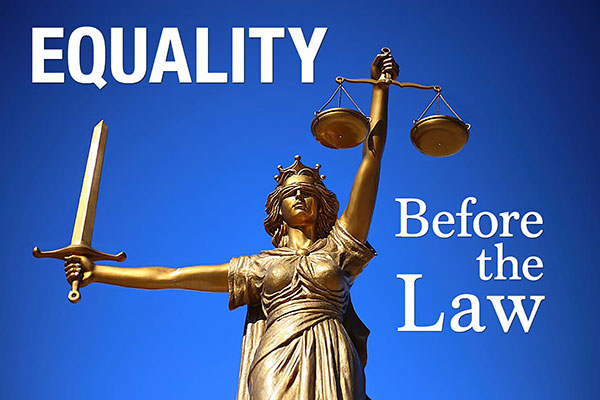There have been scholarly articles and research papers published on the topic of discrimination in family law*, but we’re interested in what you have seen or experienced when it comes to diversity, prejudice, and discrimination in the family law system – both from a career standpoint and from the laws as they apply to your clients.
Get Media Exposure: Diversity, Prejudice, and Discrimination in Family Law

Articles of 500-words+ will receive a byline as well as a 40-word bio with a link to your firm’s website at the end of the article. You can choose to have your short observations/opinions published anonymously if you wish.
Here are some topics to consider:
1. Prejudice and Discrimination Related to Your Career or Workplace
- Have you experienced or witnessed discrimination because of race, religion, gender, age, or disability by family law practitioners or judges?
- Does your law firm have attorneys from diverse backgrounds?
- Have you implemented or witnessed changes within your firm to increase diversity?
- Do you think there is no issue to address?
2. Prejudice and Discrimination Related to Family Law
Do you think the law has a built-in bias based on gender, race, faith, age, disability, or income?
- If so, how do these biases show up, and what are their impacts on divorce, property division, custody, support, appeals, etc.
- Do you have ideas for how to reduce discrimination in court to ensure equal justice for all?
- Have you personally advocated some of these changes?
- What changes would you recommend to bridge or eliminate the divide between class, race, and gender in family law?
- Do you know a family lawyer who has made a difference in these areas?
- Do you think diversity, prejudice, and discrimination in family law are minor or socially-engineered problems that do not need to be addressed?
These topics are suggestions; feel free to modify them or create a new one from your own experience. If you wish to contribute, please send an email to Editors@FamilyLawyerMagazine.com attaching your contribution or telling us what you’d like to write about.
All articles conforming to our Guidelines will appear on this website, and some may be selected to run in the next issue of Family Lawyer Magazine.
Quick Survey: Diversity & Prejudice in Family Law
If you don’t have time to write, but would still like to share your experience, then please take our quick multiple-choice survey here. If you wish to make a comment or observation related to this topic, you can do so in answer to Survey questions 9 and/or 10. You can elect to remain anonymous should we share your comment(s) in a future article on diversity, prejudice, and discrimination in family law.
*Racial Inequality in Family Court
Judicial myopia to racial context “presume[s] a level present-day social and economic playing field.” [Eric K. Yamamoto, Carly Minner & Karen Winter, Contextual Strict Scrutiny, 49 HOW. L.J. 241, 241 (2005)] The colorblind ideology is favored by those who think that race is meaningless and “race should not matter.” [Victoria C. Plaut, Diversity Science: Why and How Difference Makes a Difference, 21 PSYCHOL. INQ. 77, 85 (2010).] A race-neutral approach, however well-intentioned, can cause real harm to racially subordinated groups. [Id. at 87; see also Destiny Peery, The Colorblind Ideal in a Race-Conscious Reality: The Case for a New Legal Ideal for Race Relations, 6 NW. J.L. & SOC. POL’Y 473, 490 (2011)]. In child support enforcement cases brought against poor Black men, viewing race in this way serves to legitimize proceedings that emphasize perceived deficiencies in personal behavior and self-rehabilitation and obscures a profoundly racially stratified labor market. Discourse among legal actors and the responsibilization strategies employed in court frame poor Black fathers as economic failures, impose behavioral compliance with mandated demonstrations of “effort,” and reproduce systems of subordination.
– Excerpted from “I Do for My Kids”: Negotiating Race and Racial Inequality in Family Court (Fordham Law Review, Volume 83, Issue 6, 2015) by Tonya L. Brito, David J. Pate Jr., and Jia-Hui Stefanie Wong.
Published on:

 Do you think the law has a built-in bias based on gender, race, faith, age, disability, or income?
Do you think the law has a built-in bias based on gender, race, faith, age, disability, or income?





